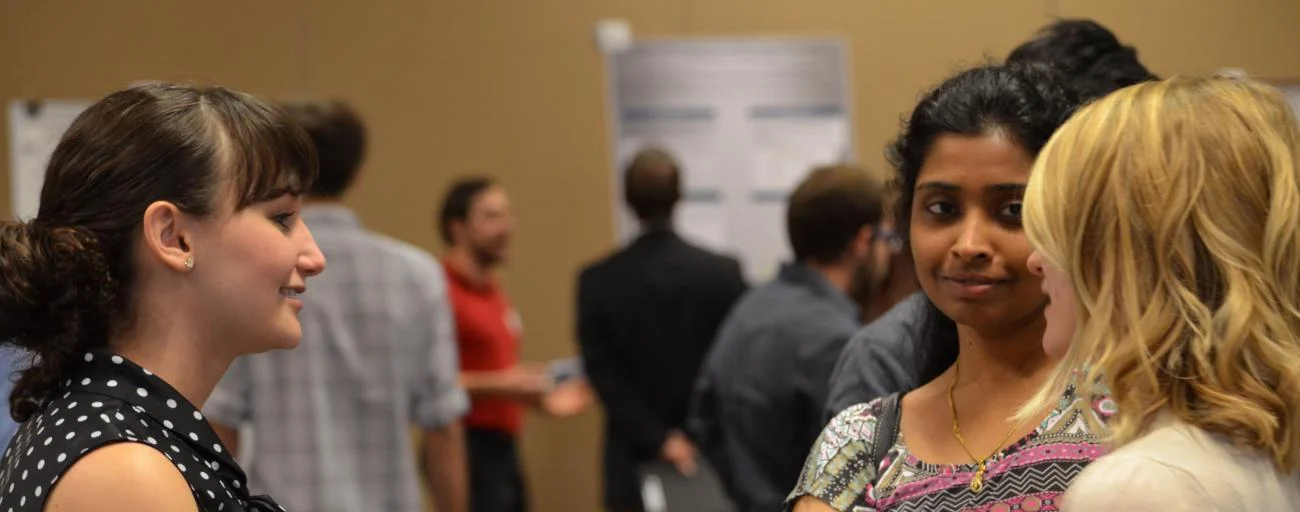
Life Science Ethics
Transforming human society
Through deeper understanding of the life sciences – from genomics to cells, organisms, species, and ecosystems – and emerging biotechnologies, the life sciences will fundamentally transform human society in the twenty-first century and beyond. Grappling with the ethical and humanistic dimensions of biology is vital to direct this transformative potential to benefit individuals, society and the world.
The program cultivates a culture in the School of Life Sciences that contributes to ASU’s commitment to “advancing research and discovery of public value” and “transforming society” as laid out in the university’s charter and design aspirations. Students, faculty, and staff in our school have unique opportunities to explore the societal and ethical implications of life sciences research and education.
Explore - Events
Bioethics Breakfast Club

Synthetic Biology and Artificial Intelligence
Facilitators:
Bert Jacobs, SOLS
Emma Frow, Bioengineering & SFIS
Christopher Plaisier, Bioengineering
Day: Wednesday, February 18, 2026, 9 - 10 a.m.
Tempe campus, LSC 202
For more information contact
Andrew Muscarella
[email protected]
The Bioethics Breakfast Club organizing committee develops session ideas and coordinates the series. SOLS graduate students make up the committee.
The 2024-5 Team is:
- Jonathan Kim, Bio & Society Ph.D.
- Cole Nichols, Bio & Society M.S.
- Don Ward, Biology Ph.D.
- Kelsi Watkins, Neuroscience Ph.D.
- Tim Williams, Microbiology Ph.D.
Ethics courses
Embedded Ethics
The program supports the school’s faculty incorporating ethics in courses, curriculum, and degree programs. Undergraduates begin exploring the ethical and social dimensions of biology in Introduction Biology with short modules on fundamental questions raised by scholars in these fields and an environmental ethics lab. Graduate students engage in conversations with peers on professional standards for researchers in BIO 610: “Introduction to the Responsible Conduct of Research in the Life Sciences.”
Undergraduate Courses
The SOLS Faculty offer a robust set of ethics courses both in-person and online. Regular classes include:
BIO 311: “Biology and Society” (3)
BIO 312: "Bioethics" (3)
BIO 324: "Environmental Ethics" (3)
BIO 416/HPS 410: "Biomedical Research Ethics" (3)
Graduate Courses
The SOLS Faculty offer a robust set of graduate ethics courses. Regular classes include:
BIO 527: "Environmental Ethics & Policy Goals" (3)
BIO 598: “Big Data in Context: Ethics, Policy, History and Philosophy (1)
BIO 598: “Neuroscience, Ethics & the Law” (2)
BIO 598: "Advanced Topics in Bioethics" (3)
BIO 610: "Introduction to Responsible Conduct of Research" (1)
BIO 611: "Advanced Topics in Responsible Conduct of Research" (1)
Faculty resources
Research
Responsible and Ethical Conduct of Research Training
ASU fulfills NSF’s requirement for responsible and ethical research training through career-stage specific training requirements.[1]
Environmental Health and Safety Training
Cathie Mancini, Manager for Safety Support Services in SOLS, is the SOLS go to person for understanding ASU’s Environmental Health and Safety (EH&S) program. In addition to working with Cathie, you can connect to EH&S through their web pages. EH&S has an extensive set of training courses[2] on topics ranging from general safety to lab safety to job-specific courses. Or, use their Training Determination Tool[3] for recommendations.
Ethics and Compliance Contacts
As you set up your research program at ASU, a variety of offices in SOLS, The College of Liberal Arts and Sciences, and ASU broadly support ethical and responsible research. Here’s an overview of offices[4] by topic and their information.
Training Graduate students
For many questions about SOLS graduate programs and graduate students, the SOLS Graduate Office[5] is the go-to resource. Additionally, see:
Mentoring Compact
SOLS requires graduate students and their primary advisors to set clear expectations for working together by completing a mentoring compact[6].
BIO 610: “Introduction to the Responsible Conduct of Research in the Life Sciences”
BIO 610[7] provides students an overview of research ethics and is required for students in many of SOLS graduate programs. MS students take it online; PhD students have an in-person section.
Courses
Academic integrity
SOLS Undergraduate Programs[8] supports faculty addressing violations of ASU’s Academic Integrity Policy with students. Policy information is posted by the Provost’s Office[9], the College of Liberal Arts and Sciences[10], and the Graduate College[11].
Research on teaching
Research on courses intended to be published or presented outside ASU may involve human subjects research and need to be approved by ASU’s Institutional Review Board (IRB)[12]. Resources for getting started include: submission instructions, walkthrough videos and a Study Submission Guide[13].
Ethics resources

Related in SOLS
Center for Biology and Society
Biology and Society Undergraduate Programs
Biology and Society Graduate Programs
School of Life Sciences Charter Initiative
Bioethics, Health, and Society Club
